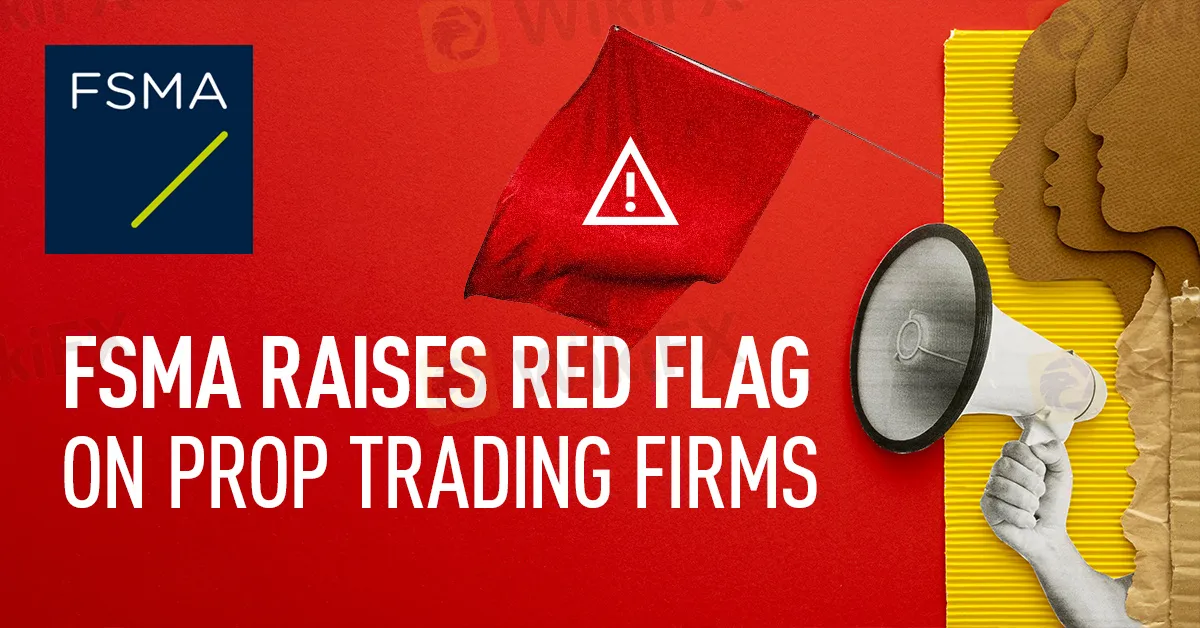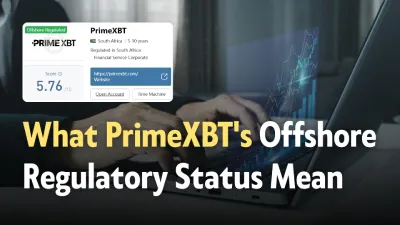简体中文
繁體中文
English
Pусский
日本語
ภาษาไทย
Tiếng Việt
Bahasa Indonesia
Español
हिन्दी
Filippiiniläinen
Français
Deutsch
Português
Türkçe
한국어
العربية
FSMA Raises Red Flag on Prop Trading Firms
Abstract:The Financial Services and Markets Authority (FSMA) issued a public warning against proprietary trading firms. There goes another hit for the proprietary trading firms!

The Financial Services and Markets Authority (FSMA) has issued a public advisory regarding the dangers associated with proprietary trading (prop trading) firms.
Prop trading firms, as elucidated by the FSMA, function by enabling consumers to trade various financial instruments such as shares, bonds, commodities, cryptocurrencies, Contracts for Difference (CFDs), and forex products without requiring the use of their own capital. However, the apparent risk-free nature of these opportunities often conceals an intricate network of financial pitfalls.
The regulator asserts that entities of this nature are currently under investigation for their questionable practices, which involve exploiting the financial inexperience of consumers and enticing them into high-risk investments.

The FSMA outlines that consumers interested in participating with prop trading firms are compelled to undergo costly and demanding courses. These courses, with a substantial price tag, aim to sift out less committed participants while generating revenue for the firms. Upon completion of these courses, consumers receive a 'certificate,' essentially a diploma issued by the firm, granting them participation in simulated trading activities. This simulated trading involves using demo accounts provided by prop trading firms, where consumers never execute real trades. Instead, the firm maintains full control over the simulated transactions, leaving consumers unaware of any potential commissions. It is also reported that many consumers find themselves caught in a cycle of paying for multiple courses without gaining access to actual trading opportunities.
The FSMA has observed a troubling surge in advertising for prop trading firms on social media platforms and the emergence of websites offering paid courses to assist consumers in navigating the challenges posed by these entities. These firms often promote trading in intricate financial instruments like CFDs and forex products, carrying significant risks for investors and potentially resulting in the complete loss of their investment.
In response to these developments, the FSMA has issued a firm caution to the public, advising against involvement with prop trading firms and their affiliated entities. The authority underscores the importance of consumers exercising utmost caution when dealing with such firms, emphasizing the inherent risks and potential financial losses involved.

Disclaimer:
The views in this article only represent the author's personal views, and do not constitute investment advice on this platform. This platform does not guarantee the accuracy, completeness and timeliness of the information in the article, and will not be liable for any loss caused by the use of or reliance on the information in the article.
Read more

7 Common Mistakes Made by Indian Forex Traders
Forex trading has become very popular among Indian traders in recent years. Every month, thousands of new traders join this market. But sadly, majority of them lose their hard-earned money because of their common mistakes. Which are these mistakes? Read below.

What Does PrimeXBT's Offshore Regulatory Status Really Mean?
Understanding PrimeXBT's offshore regulatory status, its implications, and what it means for traders looking for transparency and reliability in their investments.

iFourX: So Many Red Flags You Can’t Ignore
Forex trading has become difficult nowadays due to the frequent frauds occurring every day. You can’t blindly trust any broker . They may appear genuine and authorized but end up being scams. That’s why it’s more important to stay aware. To stay alert and informed, you need to know about a particular FX broker called iFourX and recognize its red flags.

Five Unauthorised Brokers Warned by the FCA
UK’s watchdog, the Financial Conduct Authority (FCA), recently issued a fraud alert against brokers who are operating without a license but still offering financial services. The FCA has identified these scam brokers and is warning the public not to engage with them. Check out the names of those brokers below.
WikiFX Broker
Latest News
Does XS.com Hold Leading Forex Regulatory Licenses?
Chile Bumps Up Copper Price Forecast and Flags Lagging Collahuasi Output
Treasury yields tick lower as investors look ahead to Fed's interest rate decision
Thailand-Cambodia War Pressures Thai Baht in Forex Market
Investors Accuse Duttfx Markets of Scam: What You Should Know
A breakthrough and a burden? What the U.S.-EU trade deal means for the auto sector
Treasury yields flat as investors look ahead to Fed's interest rate decision
China's latest AI model claims to be even cheaper to use than DeepSeek
Bitget Lists Caldera for Spot Trading | What Should You Know?
Jim Cramer explains what's driving the stock of Tapestry
Currency Calculator


